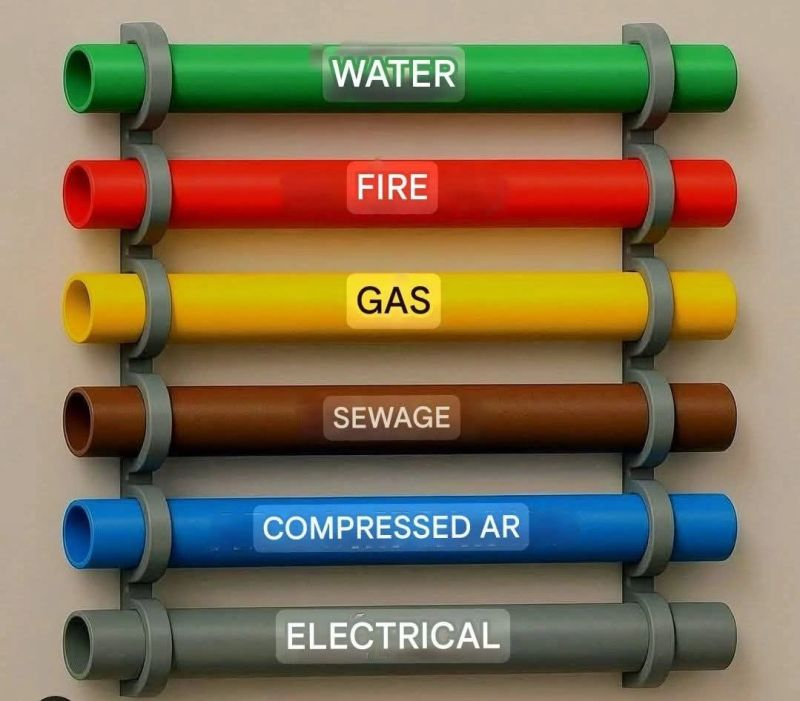Color Coding of Industrial Pipelines – Safety Starts with Identification
In any chemical or process industry, proper pipeline color coding is not just a best practice—it's a critical safety requirement.
Each color represents a specific utility or fluid: Green – Water
Red – Fire protection
Yellow – Gas
Brown – Sewage
Blue – Compressed Air
Grey – Electrical conduit
Clear labeling and standardized color codes help: ✔ Prevent operational errors
✔ Enhance workplace safety
✔ Streamline maintenance
✔ Comply with industrial standards (e.g., ANSI/ASME A13.1)
Let’s keep our plants safer, smarter, and more efficient—because safety isn’t optional. It’s engineered.
hashtag#ChemicalEngineering hashtag#ProcessSafety hashtag#IndustrialDesign hashtag#PipingSystems hashtag#SafetyFirst hashtag#Maintenance hashtag#PlantEngineering hashtag#Utilities hashtag#ColorCodeStandards
In any chemical or process industry, proper pipeline color coding is not just a best practice—it's a critical safety requirement.
Each color represents a specific utility or fluid: Green – Water
Red – Fire protection
Yellow – Gas
Brown – Sewage
Blue – Compressed Air
Grey – Electrical conduit
Clear labeling and standardized color codes help: ✔ Prevent operational errors
✔ Enhance workplace safety
✔ Streamline maintenance
✔ Comply with industrial standards (e.g., ANSI/ASME A13.1)
Let’s keep our plants safer, smarter, and more efficient—because safety isn’t optional. It’s engineered.
hashtag#ChemicalEngineering hashtag#ProcessSafety hashtag#IndustrialDesign hashtag#PipingSystems hashtag#SafetyFirst hashtag#Maintenance hashtag#PlantEngineering hashtag#Utilities hashtag#ColorCodeStandards
🔹 Color Coding of Industrial Pipelines – Safety Starts with Identification 🔹
In any chemical or process industry, proper pipeline color coding is not just a best practice—it's a critical safety requirement. 🚨
Each color represents a specific utility or fluid: ✅ Green – Water
🔴 Red – Fire protection
🟡 Yellow – Gas
🟤 Brown – Sewage
🔵 Blue – Compressed Air
⚪ Grey – Electrical conduit
📌 Clear labeling and standardized color codes help: ✔ Prevent operational errors
✔ Enhance workplace safety
✔ Streamline maintenance
✔ Comply with industrial standards (e.g., ANSI/ASME A13.1)
Let’s keep our plants safer, smarter, and more efficient—because safety isn’t optional. It’s engineered.
hashtag#ChemicalEngineering hashtag#ProcessSafety hashtag#IndustrialDesign hashtag#PipingSystems hashtag#SafetyFirst hashtag#Maintenance hashtag#PlantEngineering hashtag#Utilities hashtag#ColorCodeStandards
0 Comments
0 Shares
406 Views
0 Reviews



